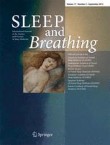
Medicine by Alexandros G. Sfakianakis,Anapafseos 5 Agios Nikolaos 72100 Crete Greece,00302841026182,00306932607174,alsfakia@gmail.com,
Πληροφορίες
Ετικέτες
Πέμπτη 26 Μαρτίου 2020
Association between excessive daytime sleepiness and measures of supraventricular arrhythmia burden: evidence from the Atherosclerosis Risk in Communities (ARIC) study
Association between excessive daytime sleepiness and measures of supraventricular arrhythmia burden: evidence from the Atherosclerosis Risk in Communities (ARIC) study:


Αναρτήθηκε από
Medicine by Alexandros G. Sfakianakis,Anapafseos 5 Agios Nikolaos 72100 Crete Greece,00302841026182,00306932607174,alsfakia@gmail.com,
στις
12:45 π.μ.

Ετικέτες
00302841026182,
00306932607174,
alsfakia@gmail.com,
Anapafseos 5 Agios Nikolaos 72100 Crete Greece,
Medicine by Alexandros G. Sfakianakis,
Telephone consultation 11855 int 1193
Εγγραφή σε:
Σχόλια ανάρτησης (Atom)
Αρχειοθήκη ιστολογίου
-
►
2023
(276)
- ► Φεβρουαρίου (133)
- ► Ιανουαρίου (143)
-
►
2022
(1976)
- ► Δεκεμβρίου (116)
- ► Σεπτεμβρίου (158)
- ► Φεβρουαρίου (165)
- ► Ιανουαρίου (161)
-
►
2021
(3661)
- ► Δεκεμβρίου (161)
- ► Σεπτεμβρίου (274)
- ► Φεβρουαρίου (64)
- ► Ιανουαρίου (368)
-
▼
2020
(4554)
- ► Δεκεμβρίου (400)
- ► Σεπτεμβρίου (381)
-
▼
Μαρτίου
(236)
- Medicine by Alexandros G. Sfakianakis
- Medicine by Alexandros G. Sfakianakis
- Medicine by Alexandros G. Sfakianakis,Anapafseos 5...
- Medicine by Alexandros G. Sfakianakis
- Vocal Release Time of Mandarin Vowels at Different...
- Optimum imaging of chron
- “Flipped OR”: a modified didactical concept for a ...
- Postoperative risk stratification in oral squamous...
- The Applicability and Efficacy of Magnetic Resonan...
- Clinicopathologic Aspects of Vocal Fold Leukoplaki...
- Interaction effect of obesity and thyroid autoimmu...
- ADAR1 Alleviates Inflammation in a Murine Sepsis M...
- Perspectives in HPV Secondary Screening and Person...
- Perspectives in HPV Secondary Screening and Person...
- Resolution of Inflammation in Neurodegenerative Di...
- Delaying Postoperative Radiotherapy in Low-Grade E...
- Neurophysiological Characteristics of Cranial Nerv...
- MicroRNAs: Potential Targets in Diabetic Retinopathy
- Pre-Ablation rhTSH-Stimulated F-18 FDG PET/CT Chan...
- Effect of Biospray Dressings on Eosinophil Infiltr...
- The Microbiome of the Nose-Friend or Foe?
- Does ischemia-modified albumin level predict sever...
- Risk factors for sleep quality disturbances in pat...
- Association between excessive daytime sleepiness a...
- Polysomnographic risk factors for vigilance-relate...
- Resistant Hypertension Secondary to Severe Renal A...
- Stevens-Johnson Syndrome–Like Reaction After Expos...
- Massive Fatal Pulmonary Embolism While on Therapeu...
- Optimizing number of cycles of induction chemother...
- Loss of S100A14 expression at the tumor‐invading f...
- Neoadjuvant chemotherapy followed by surgery for H...
- Bi‐institutional experience of transoral endoscopi...
- Clinical management of emerging sinonasal malignan...
- Biological tumor markers (maspin, CD105, nm23‐H1) ...
- Neurologic sequelae following radiation with and w...
- The Clinical and Molecular Characteristics of...
- Epstein–Barr Virus-Positive Mucocutaneous Ulcer in...
- Burden and emergency department management of...
- Practical aspects of inner ear gene delivery for r...
- Coagulation tests or standardized questionnaire, w...
- Pilot Study to Assess the Use of Ultrasound in Eva...
- Effect of Round Window Opening Size on Residual He...
- The Trach Safe Initiative: A Quality Improvement I...
- Long-Term Complications of Osteocutaneous Free Fla...
- Maxillary Frenulum in Newborns: Association with B...
- Audiometric Outcomes and Middle Ear Disease follow...
- Transoral Robotic Surgery versus Plasma Ablation f...
- Endonasal Endoscopic Surgery for Pediatric Sellar ...
- Effect of HPV Status on Survival of Oropharynx Can...
- Oncological and Surgical Outcomes of Patients Trea...
- The Effect of Prophylactic Central Neck Dissection...
- Acquired Nasopharyngeal Stenosis Correction Using ...
- Chrono-chemotherapy or conventional chemotherapy c...
- Euclidean Relationship between the Superior Semici...
- Antibacterial efficacy of chitosan- and poly(...
- A Painful Finger: An Unusual Presentation of Von H...
- Keine �
- Der hin
- The most common symptoms of pulmonary embolism are...
- Water,
- Pharmac
- Nutrien
- International Journal of Molecular Sciences
- Microorga
- Journal of Clinical Medicine
- International Journal of Molecular Sciences
- International Journal of Environmental Resear...
- International Journal of Environmental Resear...
- Cells, Vo
- Brain S
- Antibioti
- ► Φεβρουαρίου (638)
- ► Ιανουαρίου (691)

Δεν υπάρχουν σχόλια:
Δημοσίευση σχολίου